In This Section
- Home
- About
- Student Led
- Research Informed
- Practice Focused
- Resources
- Case Studies
- Green Labs Community
- News
- Office of Sustainability and Climate Action
2022/23 Energy Performance
The 2022/23 Academic Year marked a complete return to campus activities, as witnessed by the increased presence of students, staff, and numerous visitors exploring our grounds and buildings.
Life on campus closely resembled the pre-pandemic era, but our energy consumption patterns have undergone significant changes over the past three years. The imperative of ventilating buildings, especially during cold winter days, led to increased energy usage. The common design approach of recapturing waste heat by mixing fresh air with exhaust air, prevalent in the early 2000s, was no longer permitted, resulting in an increased heating load.
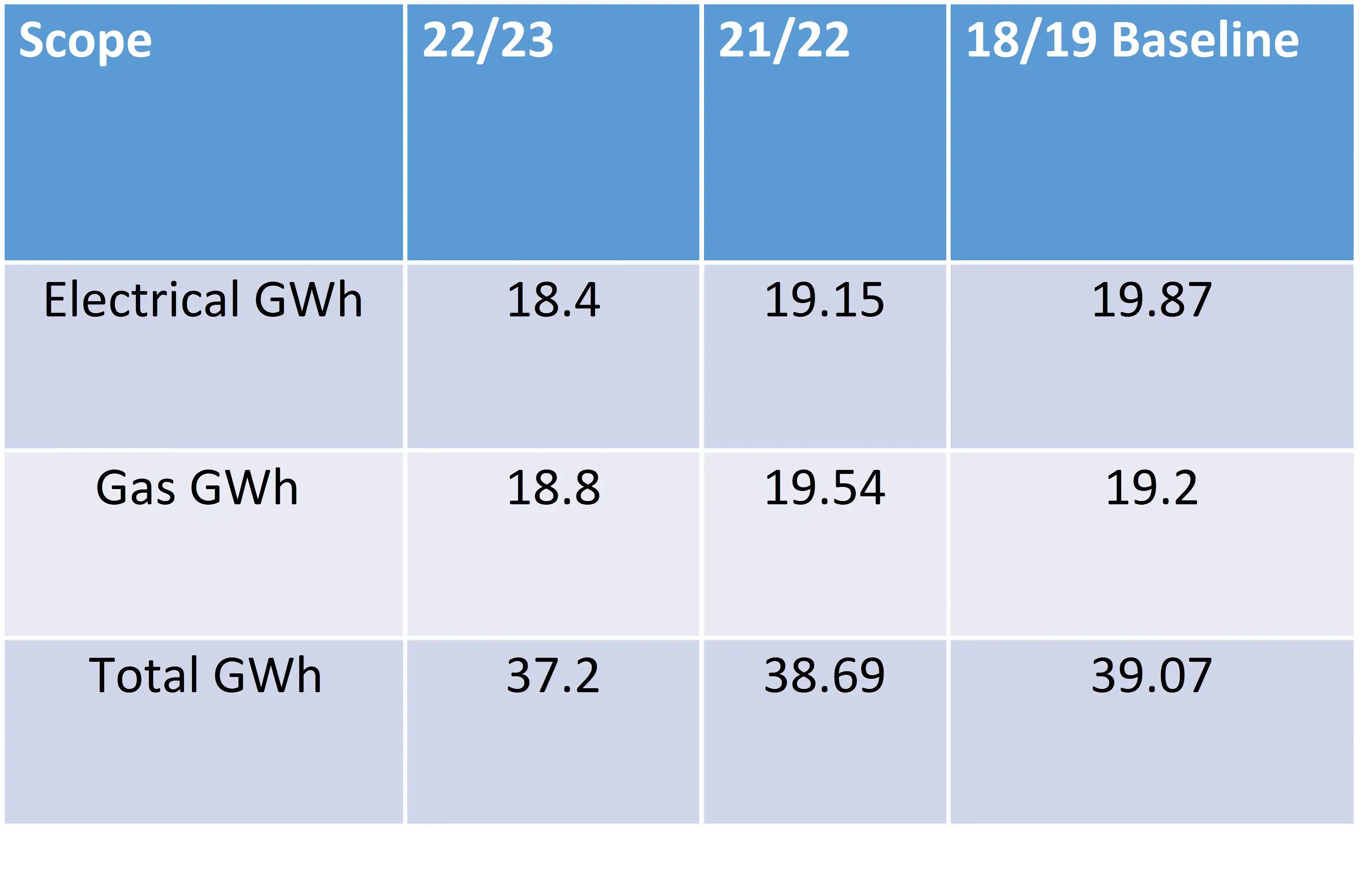
Despite these challenges, the 22/23 Academic Year witnessed a 4% reduction in our energy usage compared to the baseline period of 2018/19, totalling 37.2 GWh for the year, which is the equivalent to powering 5000 homes nationwide.
2022/23 Electrical Performance Summary
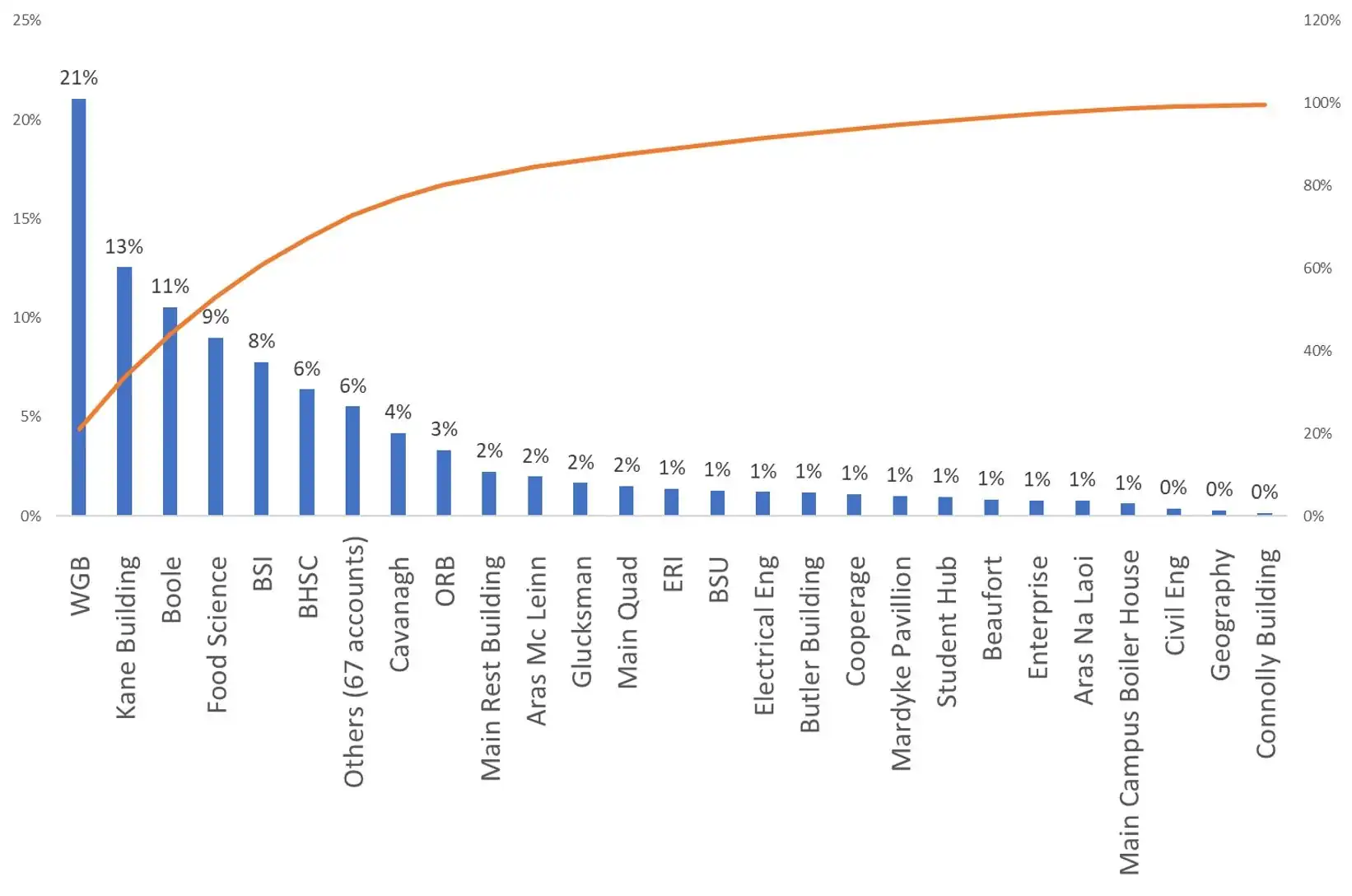
Chart of electrical use distribution across the Campus
Only three buildings experienced increased electrical consumption due to heightened activities within them. The Kane building's increase was attributed to the new ULV lab, while lighting upgrades and data centre optimization by the IT team offset the impact of the Lab.
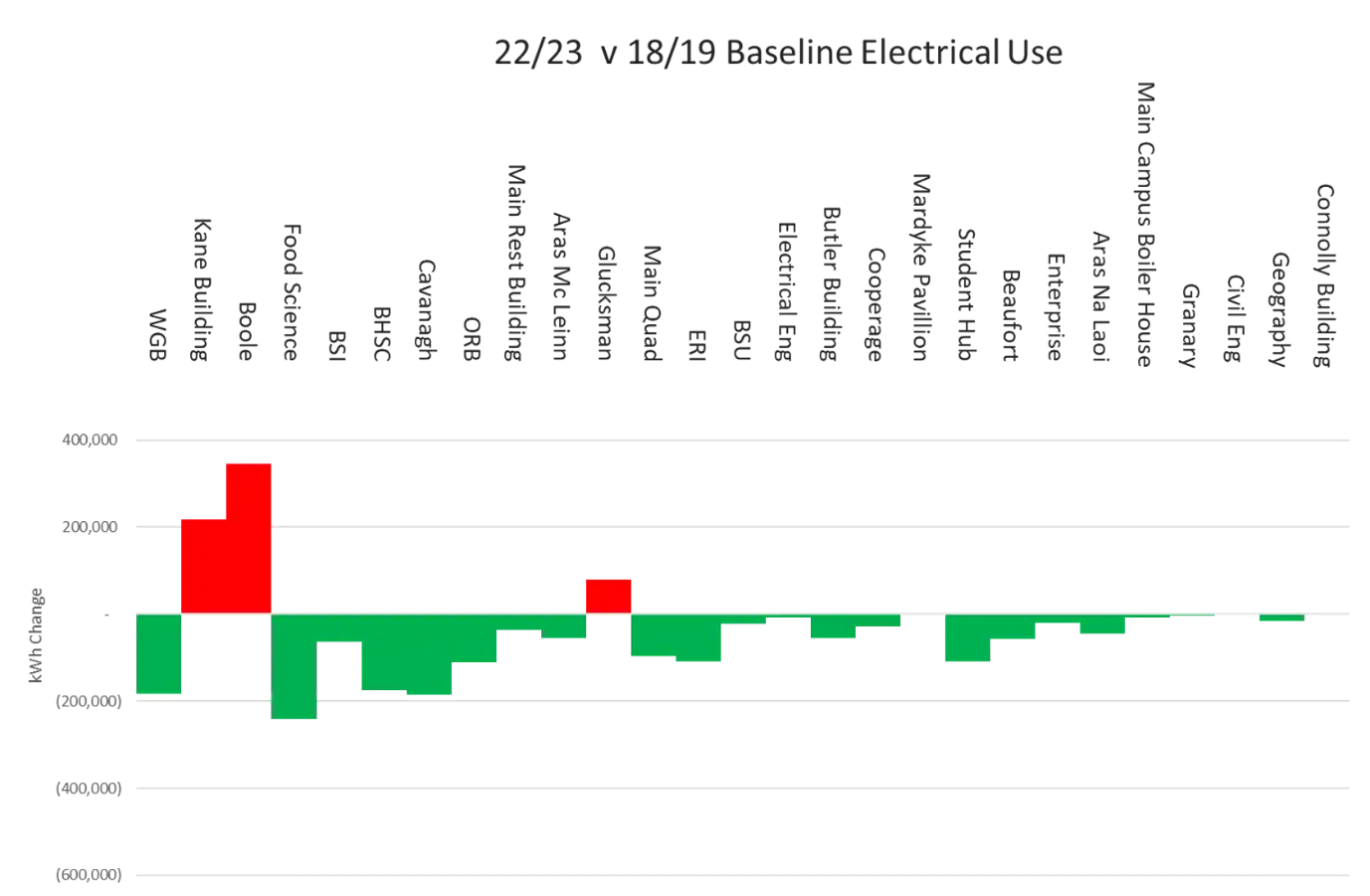
Changes in electrical use per building, against our baseline year, 2018/19
The Boole Library's extended hours and changes in ventilation protocols added to its energy load. Special exhibitions, like the Return of the Exiles, contributed to increased electricity use in the Glucksman Gallery building. However, the collective efforts of staff and students, including measures like turning off lights and non-essential services, offset these increases in most buildings.
The Estates team carried out a number of projects to conserve electricity. Chris Collins and the team upgraded the external lighting across the campus, modifying the existing lamp holders to allow the units to be retrofitted to LED, thereby avoiding the need to purchase new lamp fittings. The team took the project a step further by sourcing lamps that reduce light pollution and minimises the impact on the local insect population. The next time you are walking across the campus at night take note of the soft lighting used and the positive impact it is having on creating a more welcoming space for us and the local insect population, while reducing our electrical use at the same time.
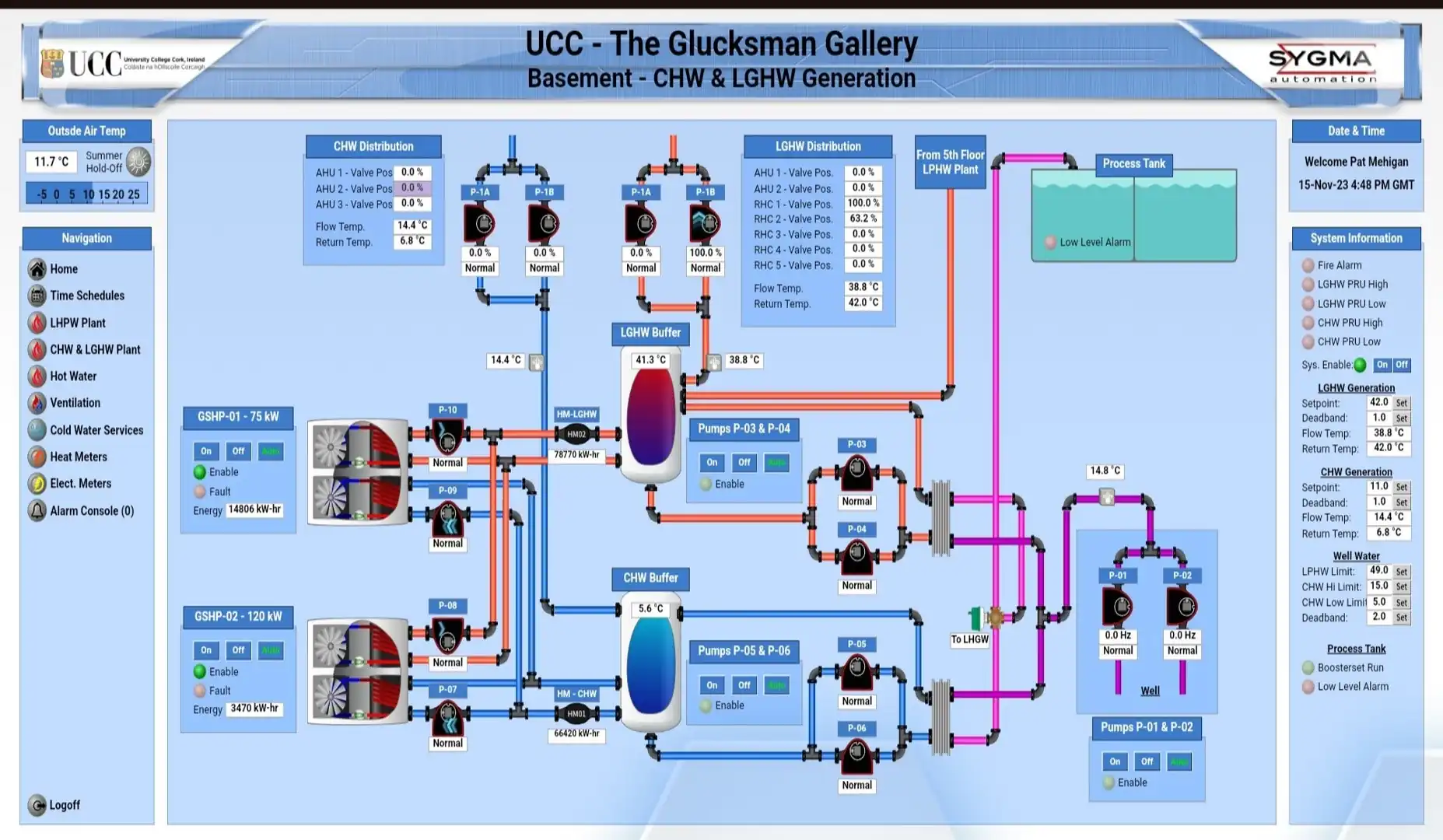
Screenshot of Glucksman BMS (Building Management System) Upgrade
These efforts, along with ongoing initiatives like heat pump installations and building management system upgrades, contributed to the 4% reduction in electrical consumption, avoiding 1.7 GWh, the equivalent to the annual electricity production of 7,700 PV panels in Ireland. With the cost of our electrical rates increasing by 400% in May, the 4% reduction was most welcome.
2022/23 Gas Performance Summary
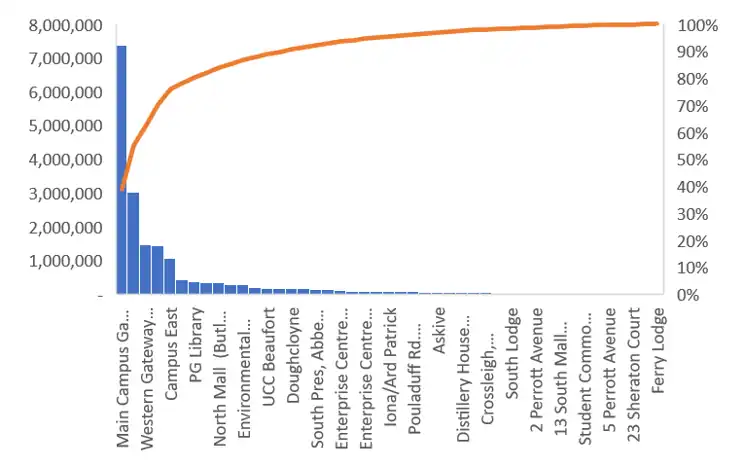
Chart of Gas use distribution across the Campus
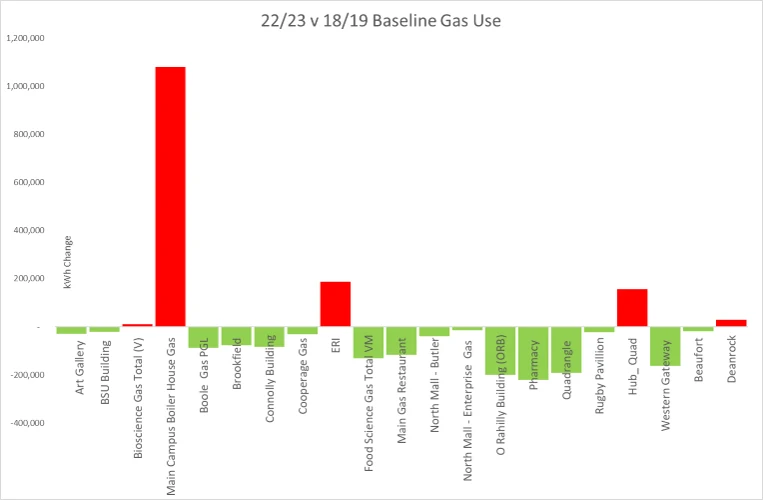
Changes in gas use per building, against our baseline year, 2018/19
Gas, which is primarily used as the fuel source to heat our buildings, reduced by 2% on the previous year and 3% below our baseline year of 2018/19. Balancing heating needs and building comfort levels is always a tricky, throw in old buildings and old heating systems onto personal preferences and it can be almost impossible sometimes. Heating schedules are adjusted on an almost daily basis depending on feedback from building occupants and the room booking schedules.
Going Forward
The Estates team, aligning with the University's Carbon reduction goals, is transitioning to heat pumps to reduce gas usage. The ORB heat pump, installed in 2020, now provides 50% of building heating, with further transitions planned for 2024. Heating system upgrades, control improvements, and room booking schedule rationalization had also contributed to gas use reductions.
Further details on our energy performance during the 22/23 Academic Year can be explored in our energy performance report UCC 2022_23 Energy Review.
Starting from the end of 2023, we will move to an annual energy report, aligning with reporting requirements under Ireland's Climate Action plan.
Pat Mehigan, UCC Energy Manager
Green Campus
Contact us
University College Cork, College Road, Cork T12 YN60,
- greencampus@ucc.ie
- Dr Maria Kirrane, Sustainability Officer - m.kirrane@ucc.ie
